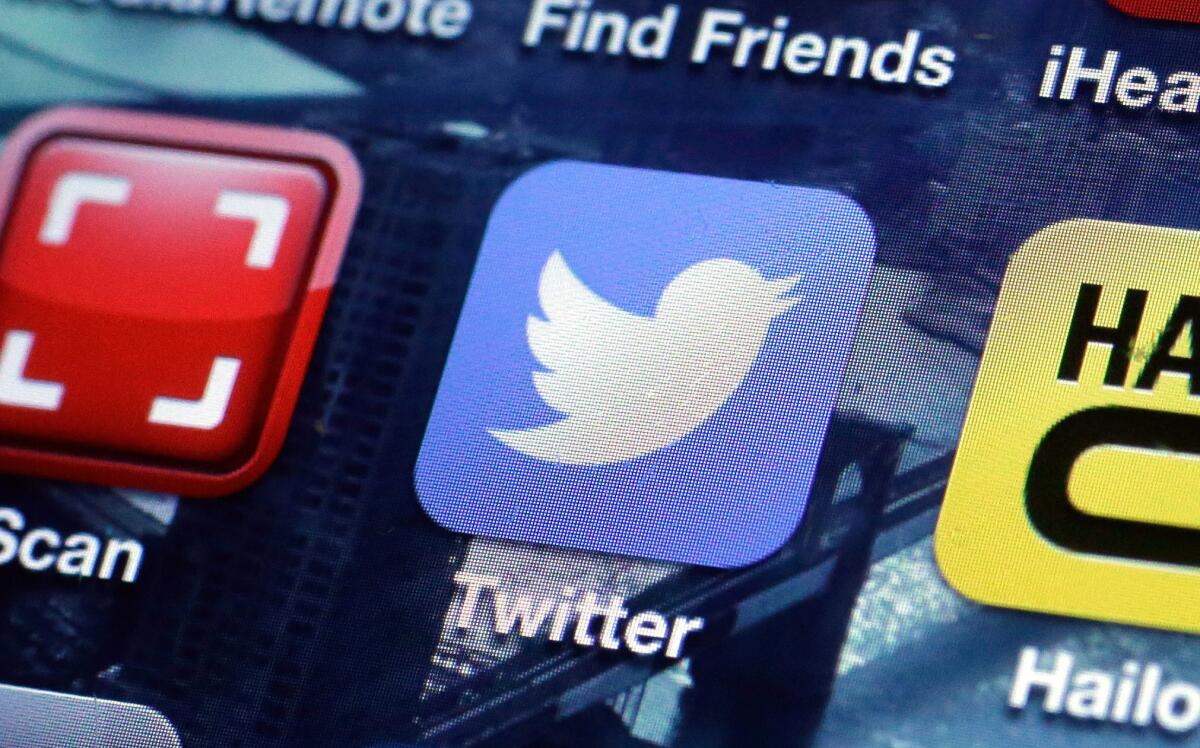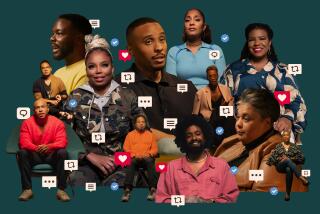The Beltway tweeter: Seduced, and skewered, by that little bird icon

- Share via
Live by the tweet, die by the Twitter sword. That’s Jofi Joseph’s fate. But he’s not the first — and he certainly won’t be the last — to perish from the wounds of 140-character cuts.
Joseph, most recently a director in the nonproliferation section of the White House’s national security staff, was fired after being unmasked as the lamebrain behind the Twitter handle @natsecwonk.
And just what irked his bosses? Perhaps tweets like this one, saved by the website the Daily Beast, which smartly anticipated writing the tweeter’s Twitter obit someday:
“I’m a fan of Obama, but his continuing reliance and dependence upon a vacuous cipher like Valerie Jarrett concerns me.”
“Was Huma Abedin wearing beer goggles the night she met Anthony Wiener? Almost as bad a pairing as Samantha Powers and Cass Sunstein ....”
(As the Daily Beast noted, this one was a doozy, “insulting a top Clinton aide, a then-congressman, and two White House senior officials in one tweet”).
Of course, it wasn’t just his colleagues that got caught in the Twitter crossfire:
“So when will someone do us the favor of getting rid of Sarah Palin and the rest of her white trash family? What utter useless garbage … ”
(Although Palin, like Kim and the family Kardashians, probably just appreciated the publicity shout-out.)
Over on ABC News, Russell Goldman’s post, “What Motivates Internet Trolls?,” tried to make sense of the destructive — and ultimately self-destructive — impulses that drive folks like Joseph.
Lack of inhibition resulting from anonymity online is a phenomenon psychologists call the Gyges affect, after a Greek myth about a shepherd who possessed a ring that could make him invisible.
“Cyber-psychologists often talk about the disinhibition affect. People do and say things online that they wouldn’t do in real life,” said John Suler, a cyber-psychologist at Rider University in New Jersey. In cyberspace, the face-to-face cues people rely on to curb inappropriate behavior is missing.
“People can’t see you. You can’t see them. You can’t see if people are cringing or looking uncomfortable, and so trolls continue to say things they would never say in a room full of people,” Suler told ABCNews.com.
Or, maybe they’re just jerks. Jerks who know that — to steal and paraphrase the tagline promo for the movie “Alien” — “In cyberspace, no one can hear you scream.”
(Which may be a bit simplistic, but it’s better than a moldy Greek myth about some shepherd with an invisibility ring.)
Still, snide comments, gossip and verbal faux pas have been around a very long time. What’s new is Twitter. It’s quick. It’s easy. It’s fun. You can be very public, or you can be secret.
And it all looks so innocent. The logo is a little birdie. Go ahead, touch it. What can go wrong? Wait, isn’t that what Eve said to Adam, offering him an apple?
As a newcomer to Twitter, I find it slightly, well, odd. I have “followers”? Really? Sorry, but there’s something a little, uh, Monty Python “Life of Brian”-esque about that.
The one thing I always keep in mind about Twitter, though, is something I heard from Colin Cowherd, the ESPN sports talk show host. His point: Thousands of tweets probably can’t help your career, but one wrong tweet can get you fired.
Jofi Joseph took ill-advised tweeting and ran with it. And he ran his career into the ground. Guess he wasn’t a fan of the Herd.
ALSO:
Goldberg: GOP, grand old potshots
McManus: Poof goes the middle class
Leave the Nevada school shooter’s parents alone
Follow Paul Whitefield on Twitter @PaulWhitefield1 and Google +
More to Read
A cure for the common opinion
Get thought-provoking perspectives with our weekly newsletter.
You may occasionally receive promotional content from the Los Angeles Times.










